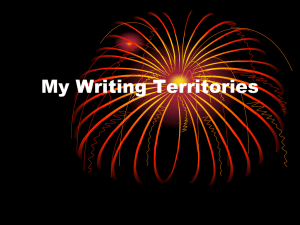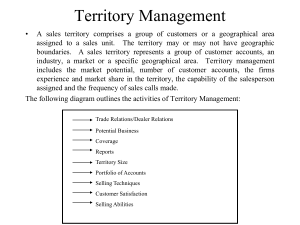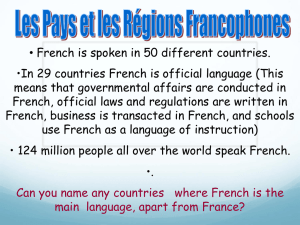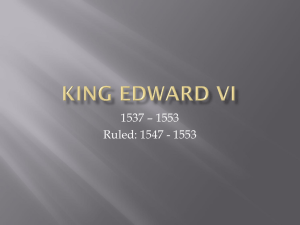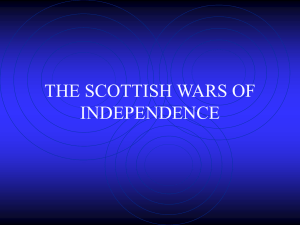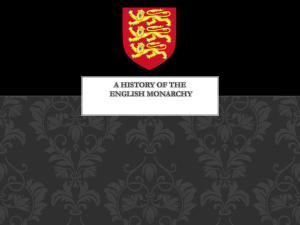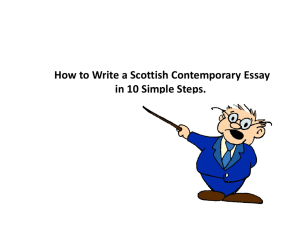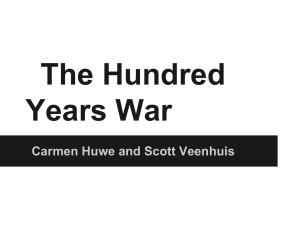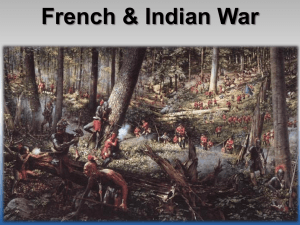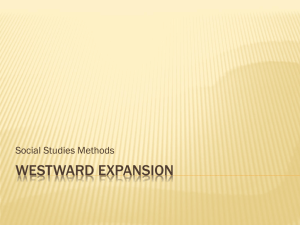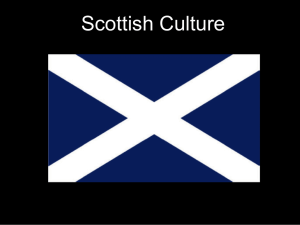100-years-war
advertisement
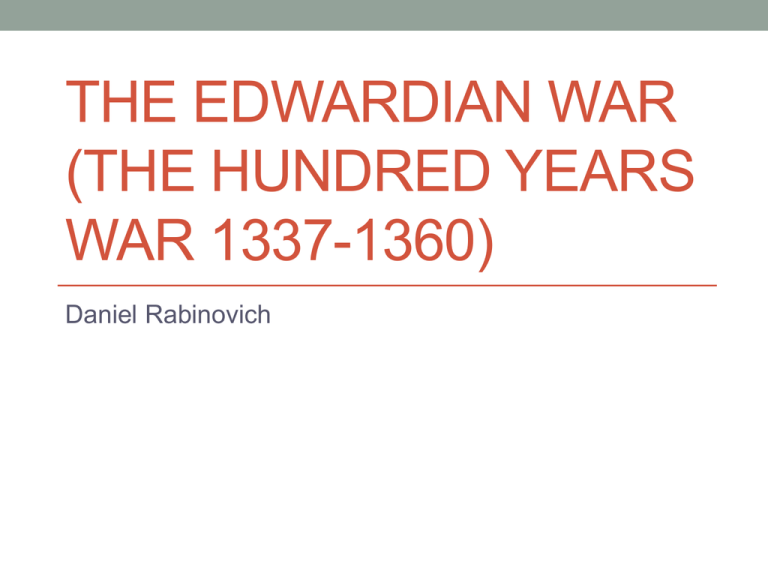
THE EDWARDIAN WAR (THE HUNDRED YEARS WAR 1337-1360) Daniel Rabinovich Overview • The Edwardian War was the first part of the Hundred Year’s War, lasting from 1337-1360. • Conflicts were focused on English claims to the French throne and England’s lands in France. • The conflicts that started this war were not fully resolved until 1453. Lead-Up to War • The Kings of England were descended from the Dukes of Normandy and held significant territory in France. These provided most of England’s tax revenue. • France was going through a succession crisis because their King had died without a son, leaving Edward III of England as the only direct male heir to their throne. Lead-Up to War • France appointed a cousin, Phillip VI, as King rather than let Edward take the throne. Phillip was later succeeded by his son, John II. • Edward was upset, but was more focused on winning his campaign in Scotland than on France • Numerous attempts are made to patch up the relationship, including the Pope asking them to go on a crusade together. War • In an attempt to prevent war Edward ceded some lands from his holdings to Phillip VI and formally acknowledged him as the King of France. • France was supporting Scotland while Edward was trying to invade it and kept encroaching on England’s territories, so eventually Edward declared himself the legitimate French king and went to war. French Crown • England’s King Edward had a claim to France’s crown because his mother was the sole descendant of France’s previous King, but had no real interest in ruling France. France did not want the English King taking the crown. • England: 15 Points • France: 30 Points England’s French Territories • England had numerous territories in France that it considered integral parts of its kingdom and were the main source of revenue. France did not like that England was controlling territories that it considered part of its kingdom. • England: 40 Points • France: 35 Points England’s Invasion of Scotland • England’s main goal at this point in time was to conquer Scotland. France was supporting Scotland, but they had no real interest in keeping Scotland independent except to keep England weak. • England: 30 Points • France: 10 Points Trade with Flanders • England’s trade with Flanders was one of its few sources of income. Although Flanders was a vassal of France, it was in a unique arrangement that prevented France from taxing and interfering with its trade with England. • England: 10 Points • France: 5 Points Other French Territories • Other French Territories were at risk of being conquered by the English, which the French desperately wanted to prevent. The English were mostly satisfied with the holdings that they already possessed, with the other territories being not much more than a bonus. • England: 5 Points • France: 20 Points Adjusted Winner First Pass England France England’s French Territories 40 35 France’s Support of Scotland 30 10 Trade with Flanders 10 5 French Crown 15 30 Other French Territories 5 20 Total 80 50 Splitting England’s French Territories • We will consider all territorial items as being liquid, representing that they could be further subdivided. • England’s French Territories have the closest ratio and are a liquid asset, so we will split these. • 80-40x=50+35x 30=75x .4=x • France will receive 40% of England’s French Territories from this split. New Results England France England’s French Territories .6*40=24 35*.4=14 France’s Support of Scotland 30 10 Trade with Flanders 10 5 French Crown 15 30 Other French Territories 5 20 Total 64 64 Actual Results • England kept it’s French holdings completely in tact and picked up new French lands. It also gained 3 million gold crowns from ransoming John II. • France gained total control over Flanders and got England to relinquish its claim to various French lands, such as Normandy, and the French crown. Comparison of Results • England came out better in reality than in Adjusted Winner • England did significantly better in the war, as France underestimated their military power, and had taken John II prisoner. France was also suffering from the Black Death at the same time. • However the war was unpopular in England. Thus, it was in Edward’s interest to end the war sooner in order to prevent problems back home even if he could not get everything that he wanted. • Neither side was satisfied with the results, leading to another war in 1369. References • The Hundred Years’ War by Desmond Seward • Wikipedia Articles on the Edwardian War and Other Aspects • Heritage History Article on the War http://www.heritagehistory.com/www/heritage.php?Dir=wars&FileName=wars _hundredyears.php
